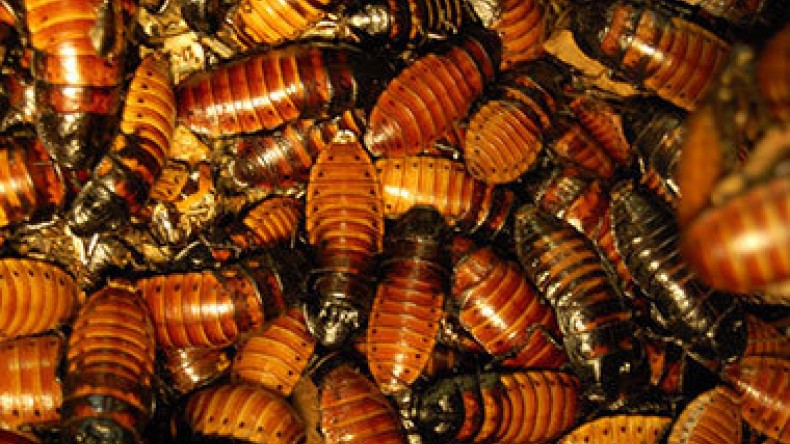
Can insects save from hunger?
The United Nations Organization has advised to people all over the world to switch over to such non-traditional products as beetle kebab and deer milk. The reason is that the UN is predicting a global product crisis that may last several decades, the Voice of Russia said.
Besides switching over to such uncustomary products, the UN also suggests to stop buying food that you would most probably throw away in the end.
UN experts have calculated that at present, in total, the Earth's population throws away about one third of the food it buys. At the same time, about 870 mln people in various parts of the world are starving. To solve this problem, the experts say, people should radically change their habits that have to do with buying food. For example, not to hesitate at buying fruits and vegetables that do not look very presentable. Or, to drink not only cow milk but also the milk of donkeys, camels and other animals.
According to the UN's data, about 1,500 species of insects in the world are quite eatable for a human. Moreover, insects are even rich with protein.
However, Russian expert in food and health Mikhail Zeygarnik is not sure whether insect protein may be healthy for people.
“True, insects are rich in proteins – practically, any species of insects,” he says. “But I am not sure whether this kind of proteins may be well taken up by the human organism – although quite a few peoples have already been eating insects for a long time.”
For nearly one third of the Earth's population, insects are quite common food. However, this is mostly in regions where people have to struggle with famine.
“It is unlikely that people in developed and developing countries will have to switch to eating insects in the foreseeable future, if the current situation with food supplies in these countries remains the same,” Russian market analyst Oxana Lukichyova says.
“I don't see any global crisis in the current situation with food in the world,” Ms. Lukichyova continues. “On the contrary, we are witnessing an overproduction of corns, meat and some other food products. The UN should try to solve the problem of famine in poor countries rather than recommend people there to eat insects. The real problem is not lack of products but lack of money. The lack of food is, to a large extent, a contrived problem. Solve economic problems – and there will be no lack of food.”
Experts say that theoretically, there are enough insects in the world for all the Earth's people to feed only on insects without hungers. But the question is whether many people would agree to switch over to such uncustomary food.
“This is a matter of habits,” Mikhail Zeygarnik is convinced.
“In every country, in every people, habits and traditions connected with food have developed for centuries, if not for thousands of years. The question is not as much whether insect food would be easily assimilated in the organisms of representatives of this or that people as whether peoples who are not accustomed to eating insects would agree to switch over to eating them. As for me, I would hardly agree to eat an insect.”
Within the last few years, meals made of insects started to appear in European restaurants, and it seems that Europeans, although slowly, have already started to get accustomed to them. However, for Europeans, such meals are still something exotic, very far from being everyday food. For example, several years ago, rotten cheese with larvae of cheese flies came into fashion in Sardinia. At first, this “delicacy” was officially banned. However, in the end, people's desire for something exotic won, and in 2010, the authorities permitted to serve this cheese in restaurants. Moreover, it was even declared to be Sardinia's cultural legacy.
Newsfeed
Videos






























